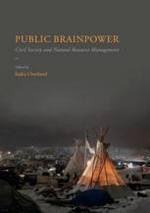Citation:
Villasmil, R., 2018. Venezuela: Public Debate and the Management of Oil Resources and Revenues. In Public Brainpower. Palgrave Macmillan, Cham, pp. 347-367. Copy at http://www.tinyurl.com/2dnzg3r6

Abstract:
Although Venezuela’s experience since the 1980s would seem to make it a classic example of the resource curse, that perspective fails to explain the country’s impressive economic, social and institutional performance—including healthy public debate—during the first five decades after oil was first produced on a large scale. This chapter takes a long view of the Venezuelan experience and argues that this initial performance was lengthy and positive but fragile, given the incapacity of the country’s institutions to adapt to the different environment that developed afterwards, characterized by high oil price volatility and significant and sudden declines in oil revenues. The prolonged initial period of equilibrium became a curse of sorts. Lacking adaptive efficiency, political institutions were forced to rely increasingly on maintaining an illusion of harmony, and as faltering performance became evident, Venezuelans began questioning the model and its hegemonic arrangements. The scope and magnitude of the economic, social and institutional devastation that followed were such that public debate became one the first casualties. One of the main problems in contemporary Venezuela is the polarization of politics. This makes it difficult for the country’s population to arrive at reasonable solutions through public discussion.Print ISBN: 978-3-319-60626-2
Online ISBN: 978-3-319-60627-9